A hectic decade of family life and politics is what prompted Larissa Bartlett to reassess her priorities and explore the realms of mindfulness and meditation.
The now 55-year-old had been working as a consultant for Intelligent Island – a campaign designed to boost the state’s information technology sector – when she met David Bartlett, the man who would eventually become her husband.
But as well as falling in love and getting married and having two children, the couple also had to navigate life in the public eye as David’s political career took off, elected first as a Labor government minister and then as the premier of Tasmania from 2008-2011.
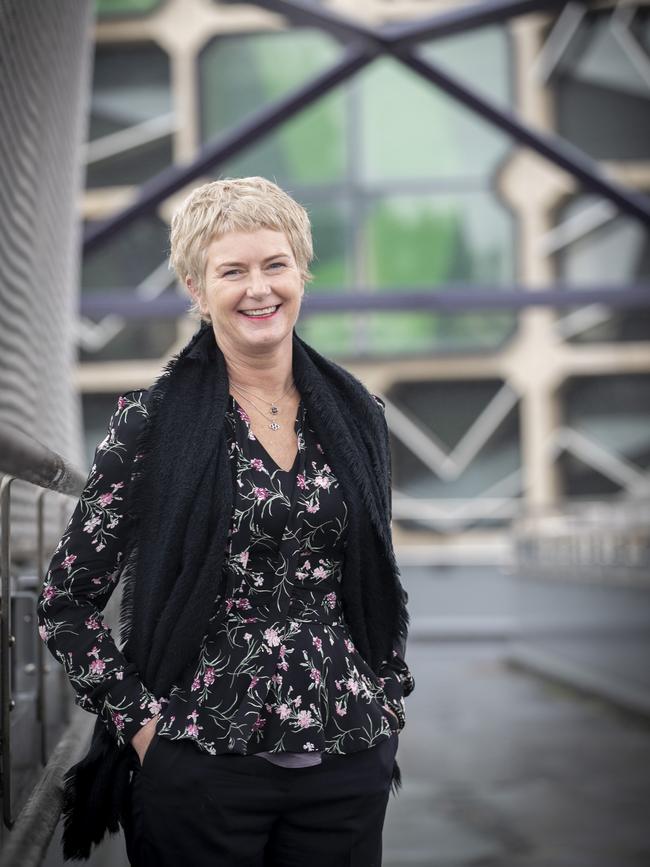
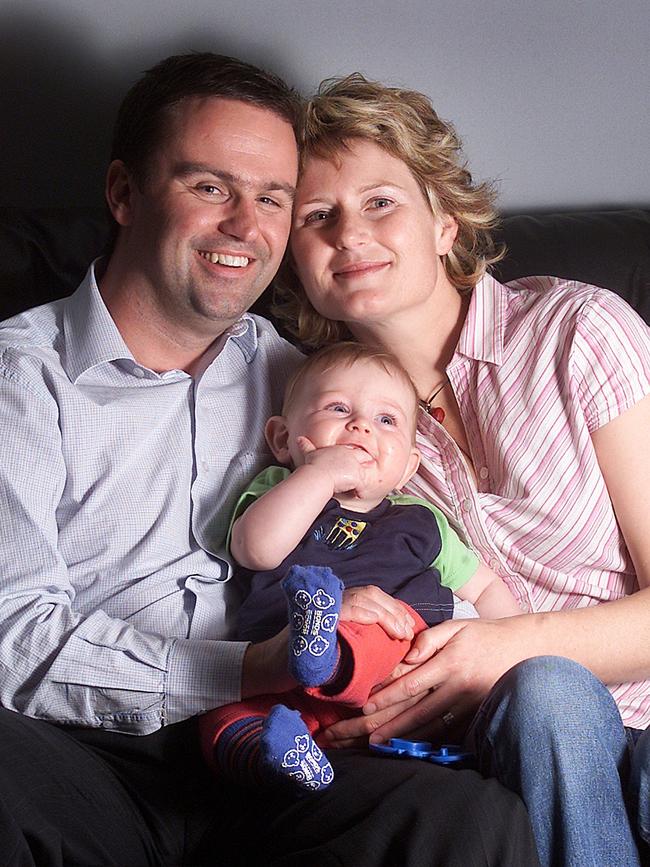
David won the seat of Denison on April 1, 2004 in what had been a busy week – he and Larissa had married only a few days earlier and had enjoyed a whirlwind three-day honeymoon on Tasmania’s East Coast before cutting it short to launch headfirst into politics. They were also new parents – their son Hudson was then just five months old. It was a frantic start to political life and Larissa says it was just the beginning of what would be an amazing ride, but also an exhausting ride.
“My husband was a politician, he was elected into office within a couple of years of us meeting and around that same time we made babies and built a house, I became a mum and a politician’s wife,’’ Larissa explains.
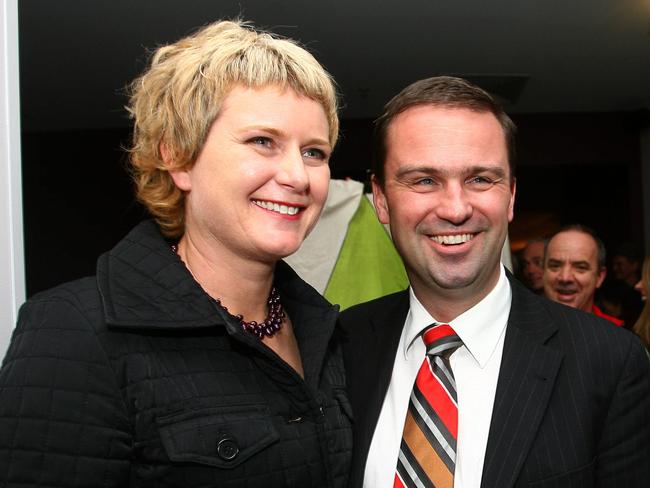
“It was a fast and furious decade of political life and parenting and other challenges. It was a fascinating and amazing time but also exhausting.’’
David quit the top job in 2011, citing family reasons. And with her very busy husband suddenly a lot less busy, Larissa – who had largely put her career on hold since having children – suddenly found herself returning to the workforce.
“When David finished working in 2011, I needed to get a job, as we didn’t have an income any more,’’ she says.
“I felt like I had lost touch, really, with professional Larissa and I needed to regain my own sense of self.’’
At the suggestion of a friend, she went and did a therapy-based mindfulness program – and she found the experience life-changing.
Larissa says in the process of doing that science-based course, informed by Buddhist principles and practices, she found a new way to connect to – and understand – her mind and her body and also discovered a renewed sense of confidence.
“These are skills I wish I had known my whole life,’’ she says.
“I was definitely able to re-centre myself and become much more aware of the person I am – unblending myself from all the people I’d been helping all of those years. It gave me the confidence to step out as myself, not just as the former premier’s wife or the mum of the kids at school. It was just really transformative.”
Initially her interest in mindfulness and meditation was purely for her own wellbeing.
But the more she learnt – and the better she felt – the more she yearned to share her new-found tools with others.
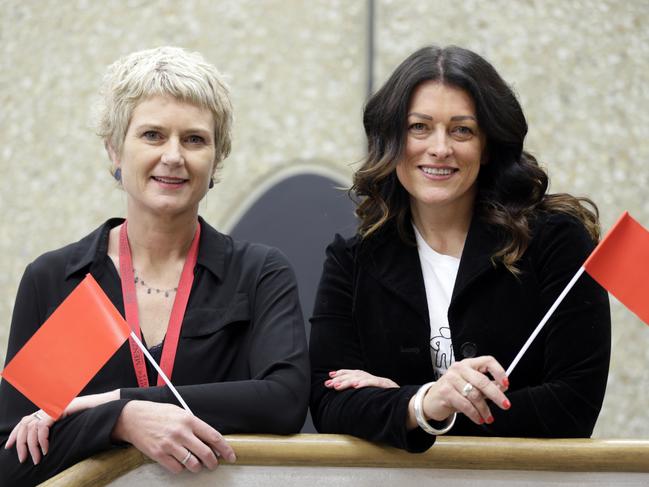
And when she attended a Mindfulness-Based Stress Reduction (MBSR) retreat and witnessed the “transformative effect” the retreat had on participants in a group setting, she realised she could help bring greater health and wellbeing to others.
Larissa has since become authorised to teach the MBSR course herself and has also completed a PhD examining the role of mindfulness in workplace mental health. She now works as a consultant and contract researcher to offer mindfulness courses, retreats and programs for individuals, organisations, sports teams and community leaders to help achieve performance and wellbeing goals and improve workplace culture.
She is The Mind Games Research Fellow at the University of Tasmania’s Menzies Institute for Medical Research, having completed three years of postdoctoral studies as the ISLAND Research Fellow at the Wicking Dementia Research and Education Centre, and she studies the effects of organisational policies and practices on workplace culture and mental health, the influence of behavioural and lifestyle factors on brain health, and the role of personal resources – such as mindfulness and psychological capital – on health and wellbeing, social relationships and work performance.
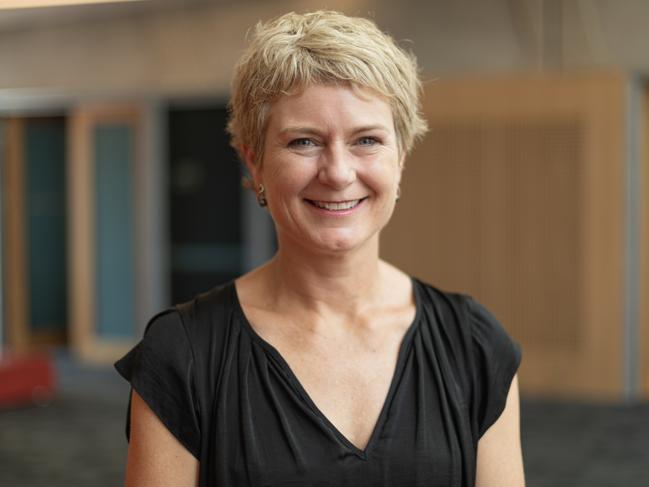
Her findings are shared in scientific journals and at public health and community events and Larissa speaks with enthusiasm as she outlines her important role in preventive health.
“I’m interested in what we can do as human beings in our daily lives to help us maximise having the kind of lives that we want to live,’’ explains Larissa, who has been called upon to evaluate workplace mindfulness programs across various industry sectors – including for the Australian Department of Veterans Affairs, Snowy Hydro, the Tasmanian Department of Premier and Cabinet and Nexus Hospitals.
“I feel like that’s a really core part of what I do.’’
And now she is preparing to share her knowledge as part of Beaker Street Festival, leading participants though a mindfulness session before they test their resolve against the heat of a Finnish sauna tent and the icy temperatures of plunge pools at ‘Hobartica’ – where Hobart meets the Antarctic – on Hobart’s Waterfront on Sunday, August 11.
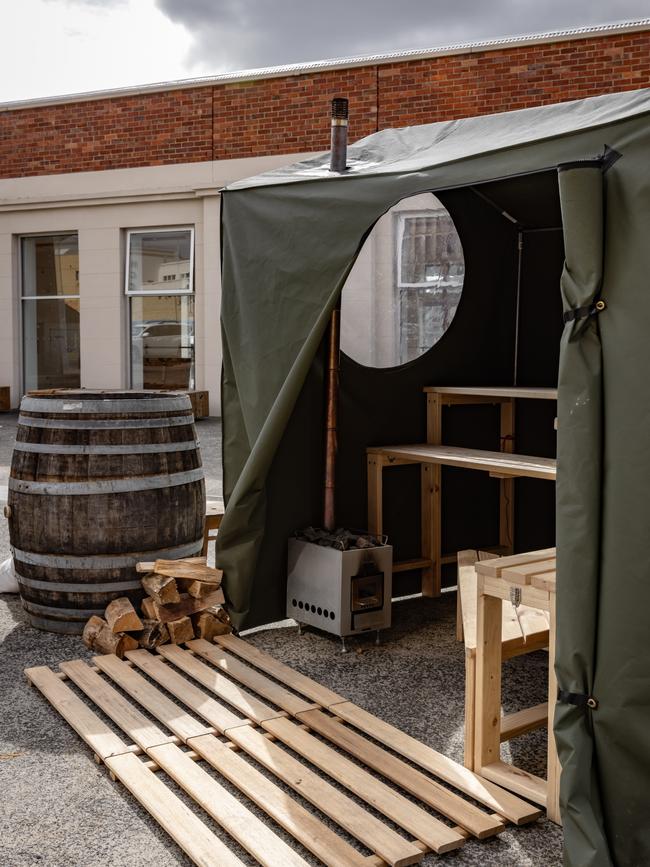
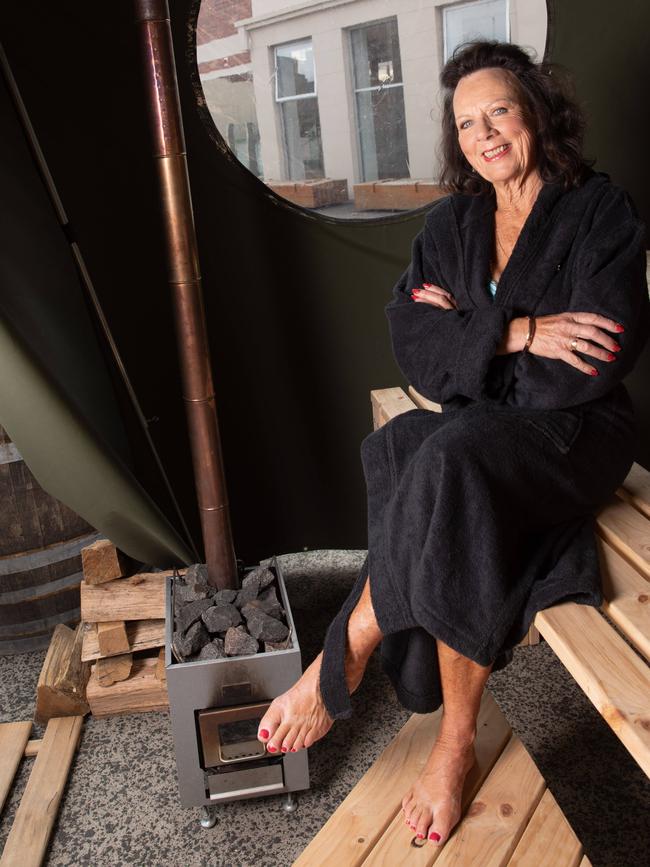
In this experiential workshop, Larissa will step participants through what mindfulness is, what it isn’t, and look at how we can cultivate this natural human quality to support health and wellbeing. Drawing together scientific evidence and ancient contemplative practices, she says this taster session is an opportunity to try out some mindfulness skills that can help build self-awareness, reduce stress, and help participants live their best lives. Immediately following the hour-long workshop, participants will have an hour of exclusive access to the sauna and plunge area, warming up in the sauna before trying some cold water immersion therapy, practices which are both widely recognised for their many health benefits.
Larissa will also be one of the speakers for Main Stage Session 2 on Friday, August 9, as Hobart City Hall is transformed into what organisers describe as “a vibrant, interactive den of cerebral delights” where visitors are encouraged to listen to fascinating chats from brilliant scientists while enjoying the comfy surrounds of a cabaret theatre and two well-stocked bars.
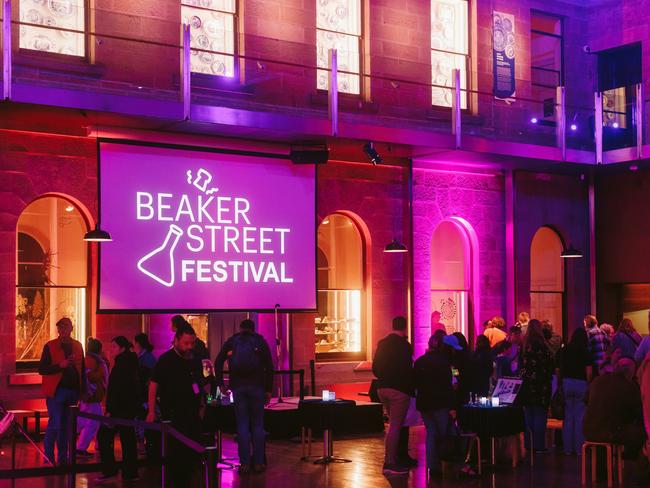
The line-up of speakers includes Australian astronomer Professor Alan Duffy, talking about the industrialisation of space and Australia’s role in mining the moon, plus an insider’s view on human spaceflight with Australian astronaut Katherine Bennell-Pegg.
Meanwhile cybersecurity guru Lilly Ryan will talk about the rise of face recognition technology and how we can protect ourselves; computer scientist Mars Buttfield-Addison will talk about AI; while Larissa will take the audience through a quick mindfulness session and talk about how we can all break smartphone addictions.
In our busy world of digital connectedness, Larissa says putting down our phones and tuning into how our minds and bodies react to that separation can be an insightful experiment.
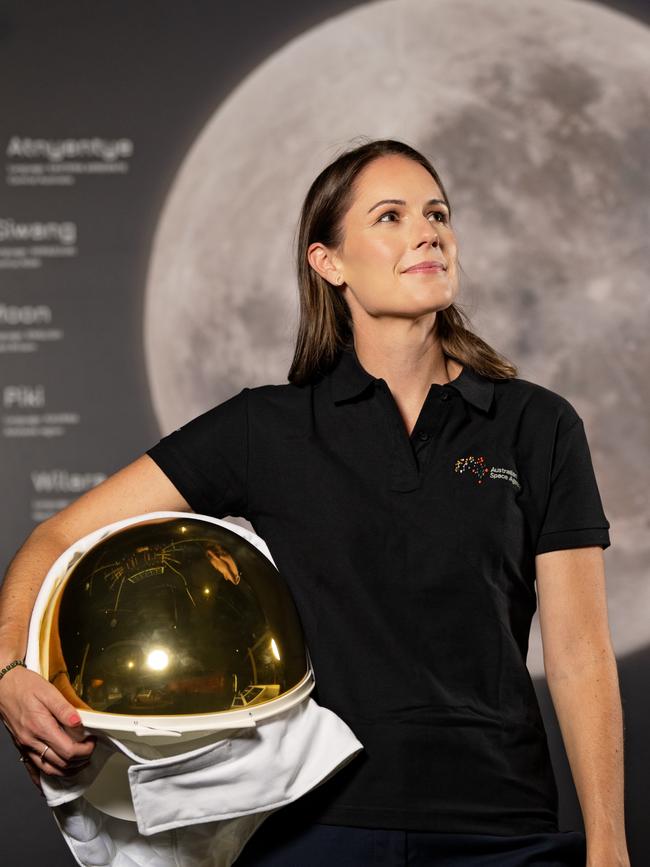
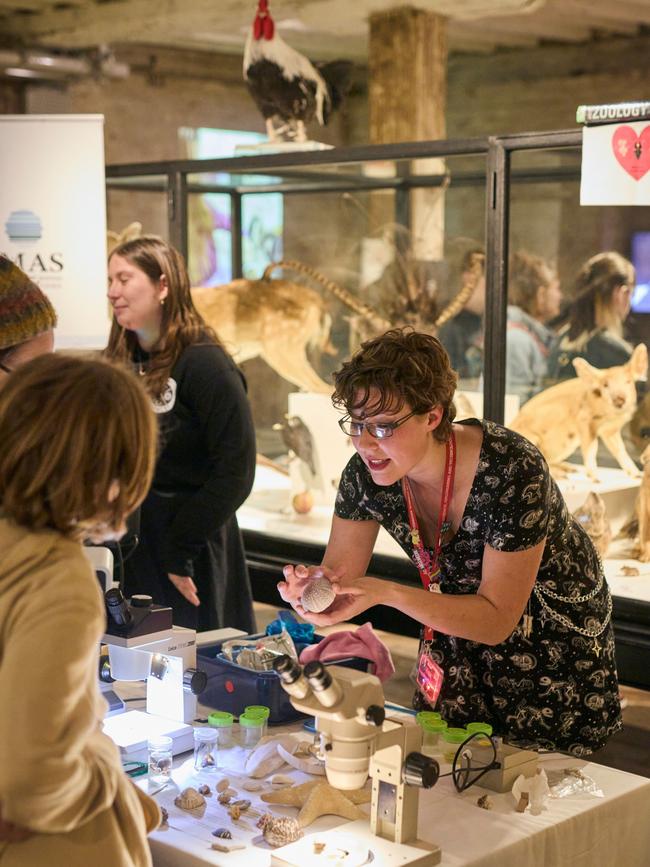
“Particularly in a world where there’s a real attention crisis happening,’’ she says.
“We have shifted from reading books to headlines and 40-second grabs. We’re growing a culture of people who don’t spend time doing things or paying attention to things.’’
Many find it difficult at first, feeling lost as they’re presented with the unease of being separated from a device that is ever-present in their lives.
But Larissa says being curious about the urges and feelings that come up when we resist the temptation of instantly checking emails or mindlessly scrolling social media can ultimately help us become more discerning about where we place our attention and how we choose to spend our time.
“Essentially mindfulness is having an intimacy with what’s going on between mind and body and your immediate environment and surroundings,’ she says.
“It gives us more agency in deciding how to look after ourselves and others.’’
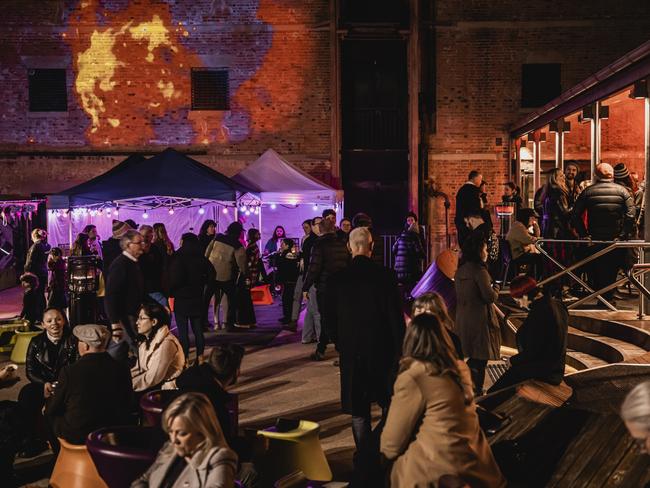
Of course technology isn’t all bad, as smartphones can also be a great tool for people wanting to embrace mindfulness.
Larissa says apps like Calm, Smiling Mind, Headspace and Insight Timer are a good place to start for people wanting to inject some mindfulness into their routines, particularly in a society where mental health conditions like depression, anxiety and substance abuse are becoming more common and an uptick in ADHD diagnoses signals a societal attention deficit.
Australian Bureau of Statistics figures show that of the 19.8 million Australians aged 16–85 years in 2020–2022, 42.9 per cent (8.5 million people) had experienced a mental disorder at some time in their life: 28.8 per cent (5.7 million people) had experienced an anxiety disorder such as social phobia or post traumatic stress disorder.
And of course, many Australians without a diagnosed mental disorder still experience stress and worry in the busyness of everyday life. Even positive stress – facing good challenges – can also be depleting.
But the good news is that research shows that even for the average person with no official mindfulness training or qualifications, simply being more mindful in daily life is protective against poor quality of life, particularly as we age.
“It really protects against multimorbidity and improves quality of life as you age,’’ Larissa says of mindfulness.
She says there is also evidence that mindfulness-based interventions – courses that run over several weeks with prescribed meditation homework – are also effective for addressing common mental health struggles and helping people to cope better with life’s challenges.
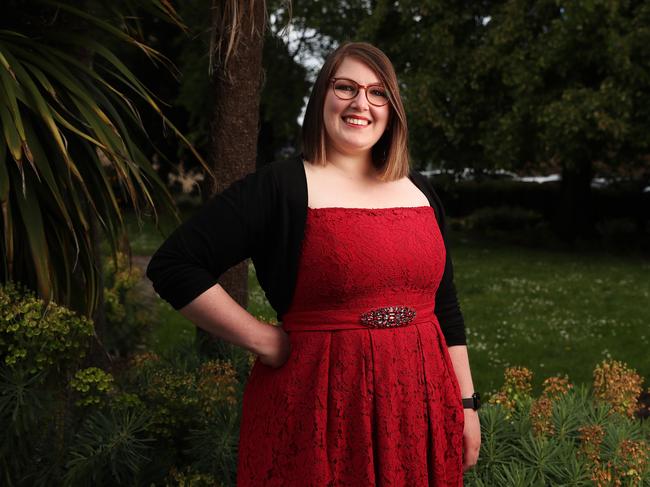
There’s also lots of evidence supporting the benefits of meditation and mindfulness within the workplace, along with plenty of anecdotal evidence from teachers about the benefits of mindfulness in the classroom.
Larissa finds the science behind the process fascinating – what happens in our minds and bodies when we are stressed or relaxed, the different hormones that circulate and the role that things like serotonin, oxytocin and dopamine play on our physical and mental health.
She says she grew up being told to “pay attention” at school, but is now unsure if she was paying attention to the things that really matter.
“There are different ways in which we can pay attention,’’ she says.
“The process of actually just taking a seat and tuning in … adjusting your posture and taking a breath. I was never really taught it. But once you know it, you kind of can’t unlearn it.’’
She says many people choose to ignore their thoughts and emotions in a misguided attempt to soldier on through challenging times.
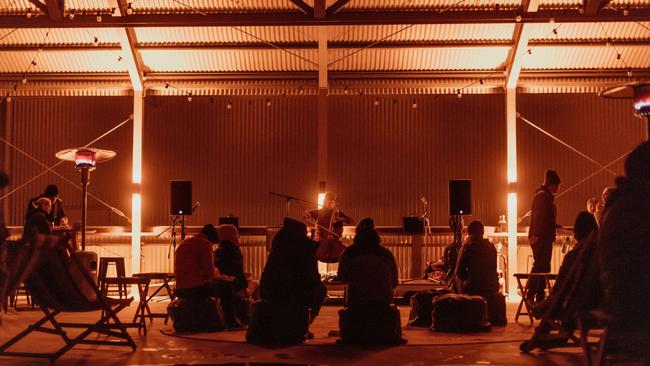
But using mindfulness and meditation to examine these emotions, and sit with them, and work through them could be hugely beneficial to health and wellbeing.
“Why wouldn’t you pay attention to emotions?,’ Larissa says.
“They are signals of things that matter. And by ignoring them you are telling your body you don’t want to listen to what matters to it.’’
Larissa says “mindfulness is not going to solve a busy life’’.
But even just taking 10 minutes to give your body and mind a chance to reset can have a lasting impact.
And if you struggle to make mindfulness a regular habit, Larissa suggests buddying up with someone – a friend, family member or colleague – to give you some support and accountability.
She says taking the time to discover what works best for us as individuals is also an important part of the journey.
Some people love meditation, others get more benefits from going for a run or a bike ride.
“We’re all called to different modalities,’’ Larissa says.
“I think it’s really about honouring what it is that offers you what your body and mind is seeking. In order to know that, you need to remember to ask the question. ‘What is it that works for me, how is this making me feel?’ If you’re getting up and going to the gym at six in the morning and you really hate it, is there another way? Or do you really enjoy it at the end because you’ve got that dopamine flood?
“[Through mindfulness and meditation] people work it out for themselves and become more intimately aware of their own passions and preferences.’’
It has been 13 years since Larissa first discovered the benefits of meditation and mindfulness.
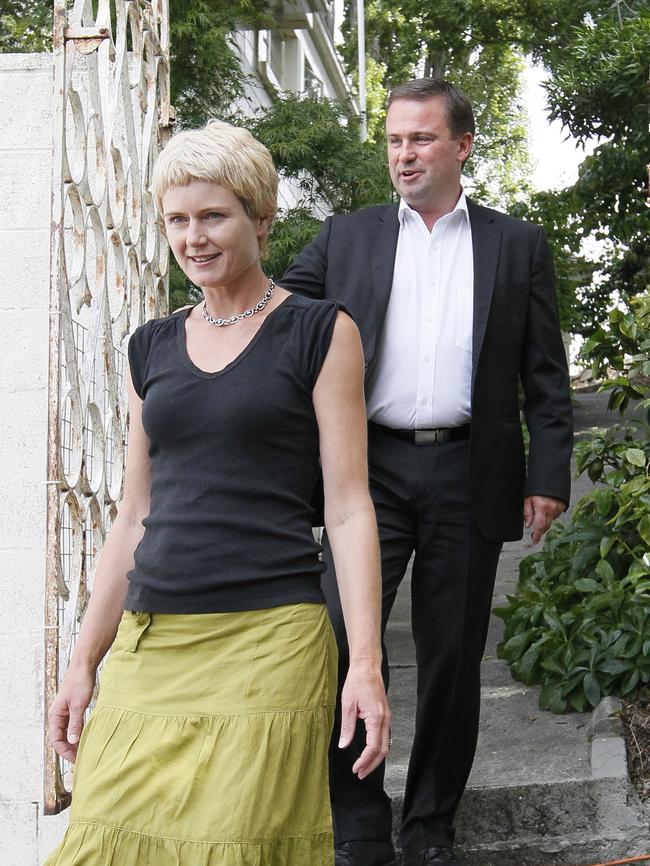
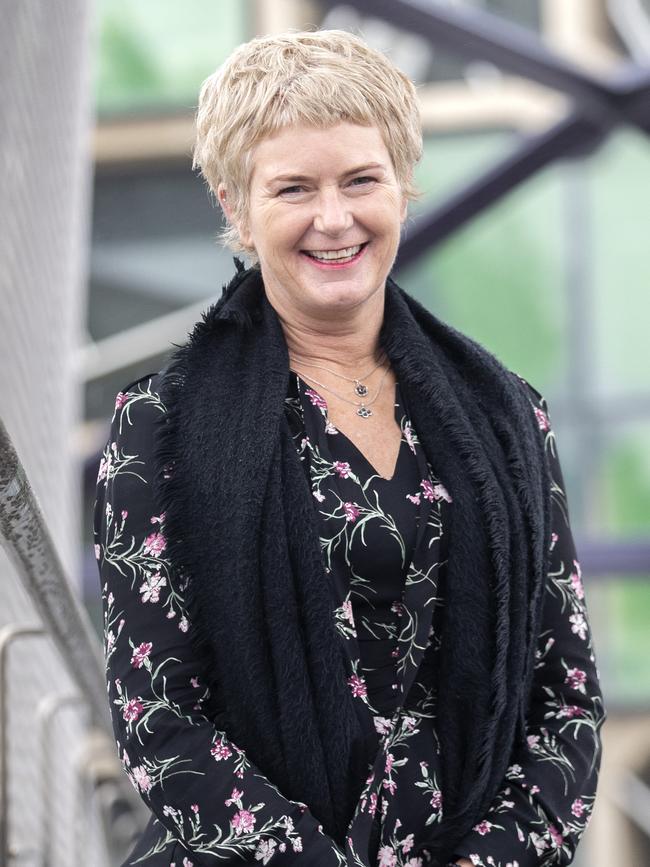
And although she could never have imagined she’d go on to work as a researcher in the field and teach mindfulness techniques to others, she has found the journey to be a “tremendous privilege’’.
“I’m very grateful to myself for having started this journey,’’ she says.•
Dr Larissa Bartlett’s Mindfulness + Sauna and Plunge session runs as part of Beaker Street Festival at Mawson Place on Sunday, August 11, from 8am – 10am. Tickets are $145 and include an hour-long mindfulness session followed by an hour in the sauna and plunge area. She will also speak as part of Main Stage Session 2, at Hobart City Hall, on Friday, August 9, which runs from 8pm-10pm. Tickets are $17 general admission, $13 concession. The ticket also includes entry to the Late Night Festival Club. Beaker Street Festival runs from August 6-13 with free and ticketed events – find out more at beakerstreet.com.au Meanwhile Larissa will run a Mindfulness-Based Stress Reduction (MBSR) course in Hobart in August with an information session on July 22. More details at larissabartlett.com

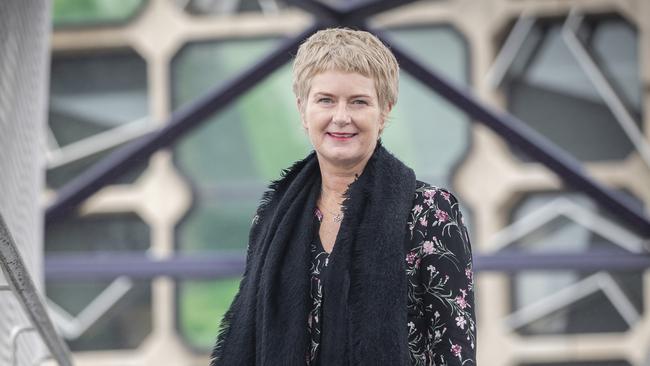
Yunnan’s soul served in every dish
At Schole, Food Culture’s Lyla Zhu and Mitch Alomes dish up the bold, tempting flavours of Yunnan in intimate Sunday lunches, writes Alix Davis
Passionate Tassie adventurer embraces epic challenges
Adventurer, environmental economist and all-round go-getter – Tassie’s Tim Harmsen is on a mission to revive one of Tasmania’s toughest winter races... while also adding a quirky new twist